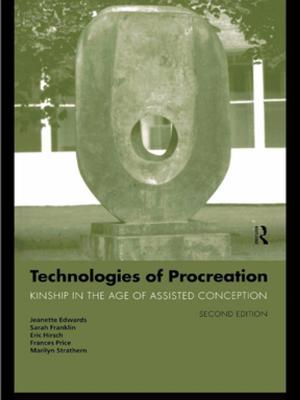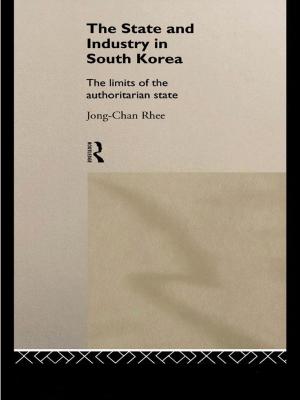Women’s Deliberation: The Heroine in Early Modern French Women’s Theater (1650–1750)
Fiction & Literature, Literary Theory & Criticism| Author: | Theresa Varney Kennedy | ISBN: | 9781317153368 |
| Publisher: | Taylor and Francis | Publication: | April 17, 2018 |
| Imprint: | Routledge | Language: | English |
| Author: | Theresa Varney Kennedy |
| ISBN: | 9781317153368 |
| Publisher: | Taylor and Francis |
| Publication: | April 17, 2018 |
| Imprint: | Routledge |
| Language: | English |
Women’s Deliberation: The Heroine in Early Modern French Women’s Theater (1650–1750) argues that women playwrights question traditional views on women through their heroines. Denied the powers of cleverness, the authority of deliberation, and the right to speak, heroines were often excluded from central roles in plays by leading male playwrights from this period. Women playwrights, on the other hand, embraced the ideas necessary to expand the boundaries of female heroism. Heroines in plays from the mid-seventeenth through the mid-eighteenth centuries reflect a shift in mentalities toward rationality and female agency. I argue that the "deliberative heroine," emerging at the dawn of the eighteenth century, is the most fully developed, exuding all the characteristics of the modern-day heroine. Although she embodies many of the qualities of her heroine counterparts, she also responds to them. Only the deliberative heroine, based on Enlightenment ideals—such as women’s ability to rationalize and the complex interplay between reason and sentiment—truly liberates female characters from a history of traditional roles. Whereas other heroines act in accordance with social construct or on impulse, the "deliberative heroine" realizes the ideals of the seventeenth-century salons that petitioned for women to have "greater control over their own bodies" (DeJean 21). She is active, and her determination to follow through with her own line of reasoning—that involves both mind and heart—enables her to determine the outcome of events. In the end, this new generation of heroines ushered in an era where women playwrights could make their own contribution to dramatic works at the dawn of the Age of Enlightenment.
Women’s Deliberation: The Heroine in Early Modern French Women’s Theater (1650–1750) argues that women playwrights question traditional views on women through their heroines. Denied the powers of cleverness, the authority of deliberation, and the right to speak, heroines were often excluded from central roles in plays by leading male playwrights from this period. Women playwrights, on the other hand, embraced the ideas necessary to expand the boundaries of female heroism. Heroines in plays from the mid-seventeenth through the mid-eighteenth centuries reflect a shift in mentalities toward rationality and female agency. I argue that the "deliberative heroine," emerging at the dawn of the eighteenth century, is the most fully developed, exuding all the characteristics of the modern-day heroine. Although she embodies many of the qualities of her heroine counterparts, she also responds to them. Only the deliberative heroine, based on Enlightenment ideals—such as women’s ability to rationalize and the complex interplay between reason and sentiment—truly liberates female characters from a history of traditional roles. Whereas other heroines act in accordance with social construct or on impulse, the "deliberative heroine" realizes the ideals of the seventeenth-century salons that petitioned for women to have "greater control over their own bodies" (DeJean 21). She is active, and her determination to follow through with her own line of reasoning—that involves both mind and heart—enables her to determine the outcome of events. In the end, this new generation of heroines ushered in an era where women playwrights could make their own contribution to dramatic works at the dawn of the Age of Enlightenment.















